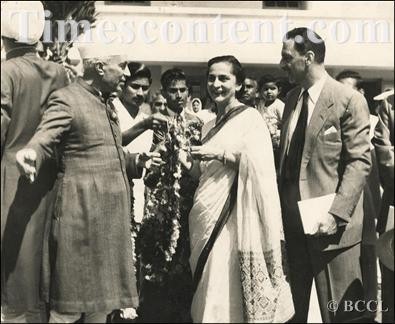Why study of business history is important?
History is the study of change and development in society over time. The study of history allows us to understand how past human actions affected the present and how it will influence our future. It allows us to evaluate these effects. So, history is about learning how to think about the past, which affects the present, in a disciplined way. History is a process of enquiry: it is about asking questions of the past. What happened? When did it happen? Why did it happen then? What were the short-term and long-term results? Who was responsible? It allows us to think critically.
Rise of Business History in India: In early 1960s, business education laid its foundation in India at Indian Institute of Management, Ahmedabad in 1961. IIMA had initial collaboration with Harvard Business School. This collaboration greatly influenced the institute’s approach to education and the institute followed Harvard tradition of the case study approach that required management students to probe into past business dealings to understand the evolution of business operations and strategies. This initiated a new course called Business History. This course was introduced in the post-graduate curriculum under the able guidance of Dr. Dwijendra Tripathi. The inclusion of business history in the postgraduate course at IIM-A in a way provided the necessary impetus to study the character of Indian business historically. There are very few scholars who can legitimately say that they founded the discipline and Dr. Dwijendra Tripathi is certainly one of them. He played a pioneering role in establishing Business history as a distinct area of research in India.
History is a reality of past, which is not always pretty or as simple. Many people are proud of their heritage and have a sense that their nation has a lot to be proud of. Without studying history one would not be aware of situations how the national characteristic of a country is evolved, Britain, for example, was the home of the Industrial Revolution, which completely changed the way the world made things. It has been home to great explorers, scientist and writers, and it has nurtured and protected democracy. But on many occasions it has played a role in events, such as the Slave Trade, and the burning of witches, which are shameful and led to huge amounts of suffering. All countries in world have a mixed bag of events in their history which gives people a reason to be both proud and ashamed. Only through studying history we can have a view of a nation building. And, business plays a pivotal role in nation building and its character.
In India, I am sure we would like to know how the business families such as Birla, Tata, Ambani, Premji, Munjal, Agarwal, Godrej, Murugappa or Dabur establish their business and how they grew. Did the first generation’s vision still continue, what ethical values do these business houses follow, the corporate governance style of the firms, their successes and failures in making strategies, all of this contributes to understanding business management. Archives of the businesses firms must be accessible to public. The tangible and intangible benefit of goodwill and legacy is important for the new generation of managers, thinkers and entrepreneurs.
Business history as a stream of education will flourish when corporates and business families set up archives accessible for research. We need genuine scientific research on this topic for understanding India’s transformation in business. Today, we face paucity of documentary sources, particularly those pertaining to the colonial period and to the operations of small and medium level traders who flourished during that period. We also face paucity in gathering information because companies are reluctant to share records of their history. And, the information available in the public domain, from sources such as the company law board or the registrar of companies, is both inadequate and incomplete. Institutional support lacks completely for the study of business history in India. But, the biggest problem in this area is that Indian Universities have ignored the importance of the subject completely.
In other countries research on business history covers decades or centuries rather than years. At IIM Ahmedabad, through the work of Dwijendra Tripathi, it has mixed formal teaching methods with unconventional ones that include adapted card games, hands-on exercises with world maps, social media interactions and Skype sessions with leading historians around the world. We need more and more business schools to take keen interest in the subject.
Some leading business houses and corporations such as the Tatas, Aditya Birla Group, Godrej, State Bank of India and Bank of India, to name a few, have set up archives of preserve materials of historical significance and make them available to all those interested. Some of these archives are even being digitized and made available in electronic form. Also, books have been published recently that seek to document the evolution of institutions that are linked to Indian business such as the Indian Institutes of Management at Ahmedabad and Kolkata
Business houses need to systematically document their history for constructing historical narratives by documenting memories of generations of workers, managers and owners. There are thousands of firms in India that have a history of over 50 years and yet, the number of professional corporate archives is in single-digits. Among these are Godrej Archives (Mumbai), TATA (Pune and Jamshedpur), and State Bank of India, Dr. Reddy’s, and Cipla, to name some. History is virtually absent in teaching and research programs in Indian business schools, and students are unaware about the origins of firms, industries and economies before 1991, 1947 is far beyond reach.
We get glimpse into business house through few series of biographies or autobiographies that only state and celebrate the achievements of a few individuals. While these books do not engage with the wider political and societal context in which changes took place. The Political, Economic, Social, Technological, Legal and Environmental analysis of how businesses grew or perished is so important for the growth of business environment in our country. Does business history matter? For whom does it matter? And if it does, how should it be promoted?
What appears to be common knowledge about the past of our businesses, in sense, many aspects of Indian business history remain unknown due to lack of research. Business history of firms can be a source of pride and learning for employees and the public. Godrej Archives in Mumbai has a wonderful collection of documents and artefacts that go back to 1897. It showcases this collection to the Godrej workforce and the outside world through exhibits, social media and newsletters, and the collection is accessible to researchers. Oral histories of employees are captured as an ongoing project since every person’s memory holds valuable information on the organization. In addition to preserving history, such efforts can make employees feel valued and instill cohesion within the firm.
In fact multinationals can do a great job on this topic. Their experience in multiple nations can help in enhancing the development of future managers and entrepreneurs. Students can challenge routine assumptions with perspectives that are enriched by historical evidence. For instance, the involvement of several Indian merchants with the East India Company in the 18th century or their Bombay Plan of 1944 was a document written by leading industrialists arguing for State intervention in the economy. One historical narrative is that India was already a highly “developed” and advanced civilization for 4000+ years when the British stepped on its shores. In the early 1860s all of the company’s Indian possessions were appropriated by the Crown. It is entirely because of the British that India lost its rich business culture.















































